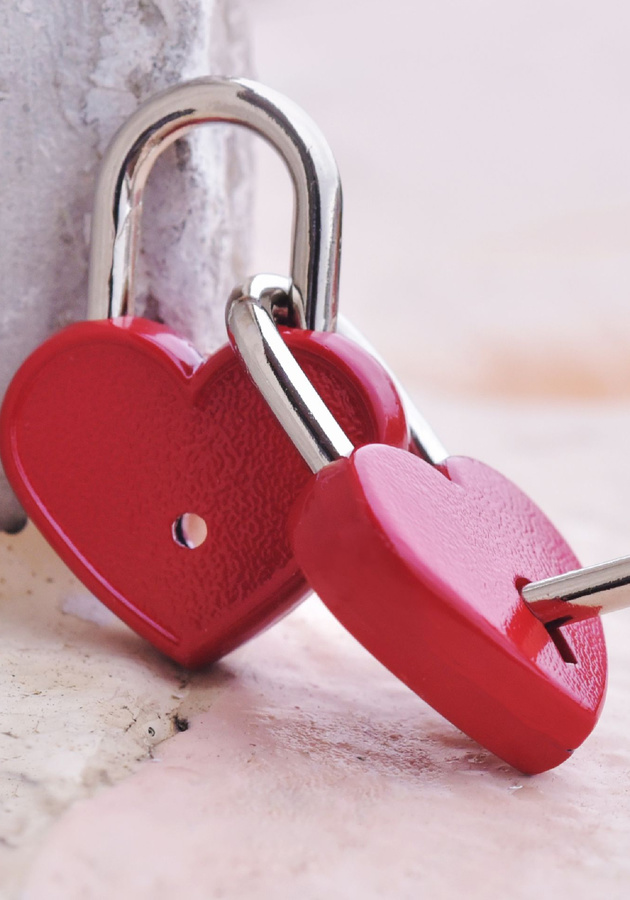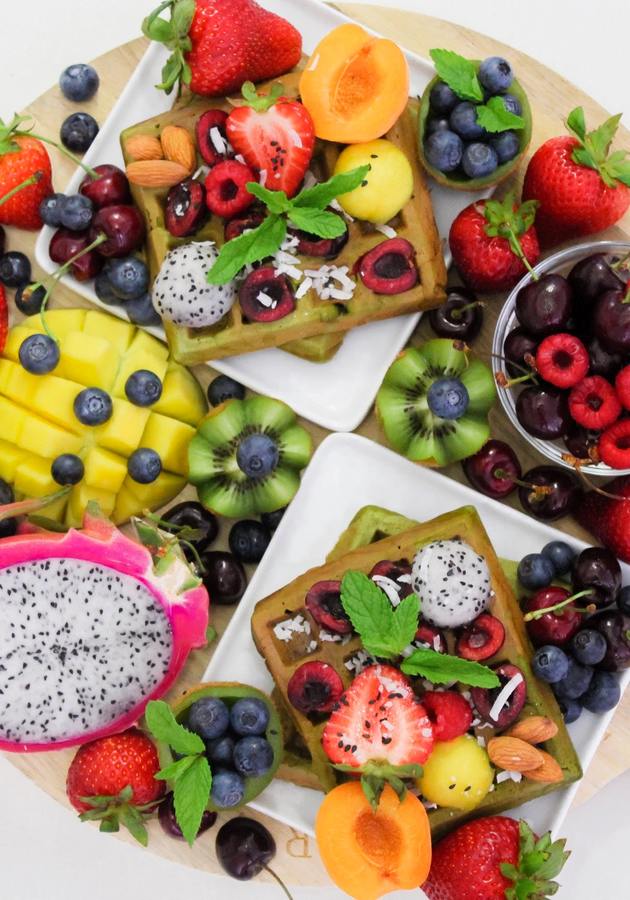‘’Everything I Know About Love’’ by Dolly Alderton is a memoir that mainly centers around the topics of boys, dating, friends, and love, and it shows how Alderton’s perception of these topics changed through the years. Essentially, it is an honest, humorous, and heartfelt story about growing up and finding oneself. So, get ready to enjoy Alderton’s ride from her teen years to adulthood!
The sound of AOL dial-up internet
What sound defined your adolescence? Was it the sound of your siblings playing in the garden? Perhaps it was the chain rattle of your bike, hobbling along hills and vales, or the birdsong on your way to school. For Dolly, it wasn’t any of these - she will always associate adolescence with the sound of AOL dial-up internet. ‘’I can still remember it now, note for note,’’ she writes. ‘’The tinny initial phone beeps, the reedy, half-finished squiggles of sound that signalled a half-connection, the high one note that told you some progress was being made, followed by two abrasive low thumps, some white fuzz.’’
Although it helped her be less bored, sad, and lonely, the experience AOL Internet gave to Dolly wasn’t complete until the arrival of MSN Instant Messenger. When it appeared, it quickly became more than just an opportunity to keep in touch with friends - it was a sanctuary, a private space, and, more importantly, an introduction to boys with whom Dolly hadn’t had special contact until that point since she went to a girls-only school. With MSN, a separate group labeled ‘’Boys’’ in the contact list appeared - some of them were family friends or cousins of a friend, some neighbors about the same age, and, the most valuable category, boys someone had met on a family holiday.
If you had an MSN Messenger when you were a teenager, you probably know that hours-long correspondences rarely resulted in real-life meet-ups and, when they did, as Dolly says, ‘’they were nearly always a gut-wrenching disappointment.’’ Unfortunately, the bad experience with dates continued even after she stopped logging in to MSN and started meeting the boys offline. ‘’I always thought my fascination and obsession with the opposite sex would cool down when I left school and life began, but little did I know I would be just as clueless about how to be with them in my late twenties as I was when I first logged on to MSN Messenger. Boys were a problem. One that would take me fifteen years to fix,’’ she writes.
Everything Dolly learned about love until the age of 28
So, when she was a teenager, everything Dolly knew about boys was that the relationship with them was complicated and nothing she expected it to be. And she needed them so desperately to achieve romantic love because it was ‘’the most important and exciting thing in the entire world.’’ What would she do if she couldn’t manage to find her true love? Well, a teenage Dolly thought she would fail, just like so many of her ‘’art teachers who I have noted are ‘Miss’ instead of ‘Mrs’ and have frizzy hair and ethnic jewellery.’’
Romantic love is connected with sex and, apparently, it is crucial to have sex with lots of people, which means no more than ten of them. You can easily achieve this number if you lose your virginity after your 17th birthday and before your 18th birthday. However, if you fail to do this, your sex life will forever be determined - you will end up as a virgin who will never have sex. Yes, if you had met a young Dolly, she would give you this and many other pieces of advice about sex and relationships, such as the one that you should be rude to boys because being nice is what they see as uncool and babyish.
A 21-year-old Dolly still believed in romantic love, and she thought a girl became worth it when she got thin and, therefore, happy with who she was. True love and the right man, she thought, would come once you are settled, centered, and calm. However, four years later, she had a different take on this - ‘’Some women get lucky and some women don’t. There are good guys and bad guys. It’s sheer luck who you end up with and how you get treated.’’
Finally, at 28, Dolly’s reflections on love, sex, and relationships became more mature and realistic. She realized sex wasn’t a game of power play but a ‘’consensual, respectful, joyful, creative, collaborative experience.’’ Unlike 25-year-old Dolly, who saw people plainly as good or bad and thought that a good relationship was a matter of luck, 28-year-old Dolly regarded people simply as individuals who were both responsible for everything that was happening in a relationship. ‘’Unless someone dies, if a relationship goes wrong, you somehow had a part to play in it,’’ she writes.
Everything Dolly knows about bad parties
Apart from being a chronicle of bad dates, the teenage years are also a chronicle of bad parties. The one Dolly particularly remembers was the one that took place on New Year’s Eve 2006, the year she enrolled at the university. She was 18, and, luckily, not a virgin, but six months into her sexually active life and ‘’at a uniquely heightened stage of sexuality.’’ As sex was her biggest adventure and discovery at the time, she was thinking about it constantly. Therefore, once she spotted a familiar and friendly face at the party, she approached him, and they started snogging in no time. ‘’This is how I operated when my hormones were pumping through my bloodstream so thick and fast; a handshake became a snog, a hug became a dry hump. The social markers of intimacy all climbed up a few steps.’’
Unfortunately, when Dolly and the boy from the party locked up in a bathroom to ‘’seal the deal,’’ a few interruptions prevented them from doing so. The first one was her girlfriend, who wanted to get in the bathroom to take off her knickers so the guy she made out wouldn’t feel them. Once she got out, Dolly and the boy wanted to continue, but he couldn’t perform. Since they did not want to give up immediately, they made several unsuccessful attempts to fix the situation. In one of them, they even broke the shower. Eventually, they decided to part ways.
Another bad party that stuck to Dolly's memory happened also on New Year’s Eve, a year later. That time, she also met a boy she liked, but the problem was that he liked someone else - her best friend Farly. Of course, Dolly did not want to set him up with her and lied that Farly was in a relationship with an imaginary guy, Dave. All would've ended well if Farly did not hook up with someone else at the party, leaving Dolly to enjoy the fireworks at midnight in silence with the guy who wasn’t her or Farly’s meant to be.
What Dolly learned in therapy
When you visit a therapist for the first time, they begin the session by asking: ‘’Why are you here?” In most cases, the answer to this question involves a critical event, state, or feeling that pushes someone to make an appointment. That was the case for Dolly, whose friend recommended her to call a therapist after hearing she felt ‘’on the verge of explosion.’’
When her therapist Eleanor asked Dolly what was the reason for her being in her office, she responded, ‘’I think I’m going to fall and die.’’ To her next question of how long she had felt like that, Dolly answered, ‘‘It’s all got really bad in the last six months. But on and off for the best part of ten years. The drinking gets bad when I’m very anxious. Same with the death obsession.’’ She talked about her drinking, inability to commit to long-term relationships, and being open with her friends. In the end, Eleanor told her, ‘‘You feel like you’re going to fall because you’re broken into a hundred different floating pieces. You’re all over the place. You’ve got no rooting. You don’t know how to be with yourself (…) You’ve got no sense of self.’’ And then, Dolly’s ‘’detective work’’ on herself to discover how she became who she was in twenty-seven years began.
Dolly and Eleanor talked and talked for months until she posed a cause-and-effect theory that fitted. She sometimes set Dolly tasks in the form of things she could try, questions to answer, or conversations she had to have. After a while, Dolly stopped drinking excessively. She became more honest with herself and others about what made her upset, angry, or offended. Honesty came with another benefit - wrong people who thought Dolly’s self-examination was boring disappeared from her life. The work on therapy eventually enabled her to notice her behavioral and thinking patterns and turn the talking into action. Moreover, the gap between her feelings and behavior got smaller, and, finally, she was getting closer to ‘’a sense of self, a sense of calm. And a sense of home.’’
I am enough
In one episode of ‘’Desert Island Discs,’’ Jilly Cooper says that when she was at an all-girls school, her obsession with boys went to such a level that she sometimes would even fantasize about her 80-year-old male gardener. Dolly says that, in a way, she never stopped being like that, even when she grew up. She writes, ‘’Boys fascinated me and frightened me in equal measure; I didn’t understand them, and neither did I want to. Their function was for gratification, whereas female friends provided everything else that mattered. It was a way of keeping boys at arm’s length.’’
However, at some point, Dolly realized she did not need instant gratification from men anymore. She longed for intimacy, but all she could create was intensity. So, she felt it was time for her to go into celibacy. A month passed without dates, dating apps, and casual sex. Dolly felt relieved. After two months, she realized her perspective changed. ‘’I discovered what it was to go to a wedding and actually be there to witness your friends getting married, rather than treating it like an eight-hour meat market. I found out what it was like to enjoy the beautiful, bell-like sound of a choir singing in church, and not manically scan the pews, checking the fingers of all the men to work out which were unmarried.’’ Her world did not revolve around boys anymore, and she did not need their attention. ‘’I felt like I was finally jogging along on my own path, gathering my own pace and momentum.’’
The others also sensed a change in Dolly. Farly, for instance, said she enjoyed her calming company. As a matter of fact, she told Dolly she had never seen her that calm in the twenty years they had known each other. It was because Dolly realized she did not need a charismatic musician to write a line about her in a song, nor a man for whom she would change her shape to become worthy of his love. She did not need his words, looks, or comments to believe she was visible when she truly was. Visible, whole, and complete. She was enough.
Final Notes
When a person hears that Dolly Alderton’s memoir revolves around the topics of boys, parties, friends, and dates, they might have a wrong impression that it is yet another piece about the joys and sorrows of teenage years that will appeal mainly to younger readers. However, ‘’Everything I Know About Love’’ is much more than that, and it uses the mentioned topics only to delve into a more complex story about becoming an adult with a healthy perspective on life. Moreover, it is a valuable and vivid account of what it looked like growing up during the beginning of the 2000s. We truly recommend it to readers of all ages.
12min Tip
If you are curious to see how Dolly’s memoir is adapted to screen, watch a highly rated series of the same name starring Emma Appleton and Bel Powley.




























